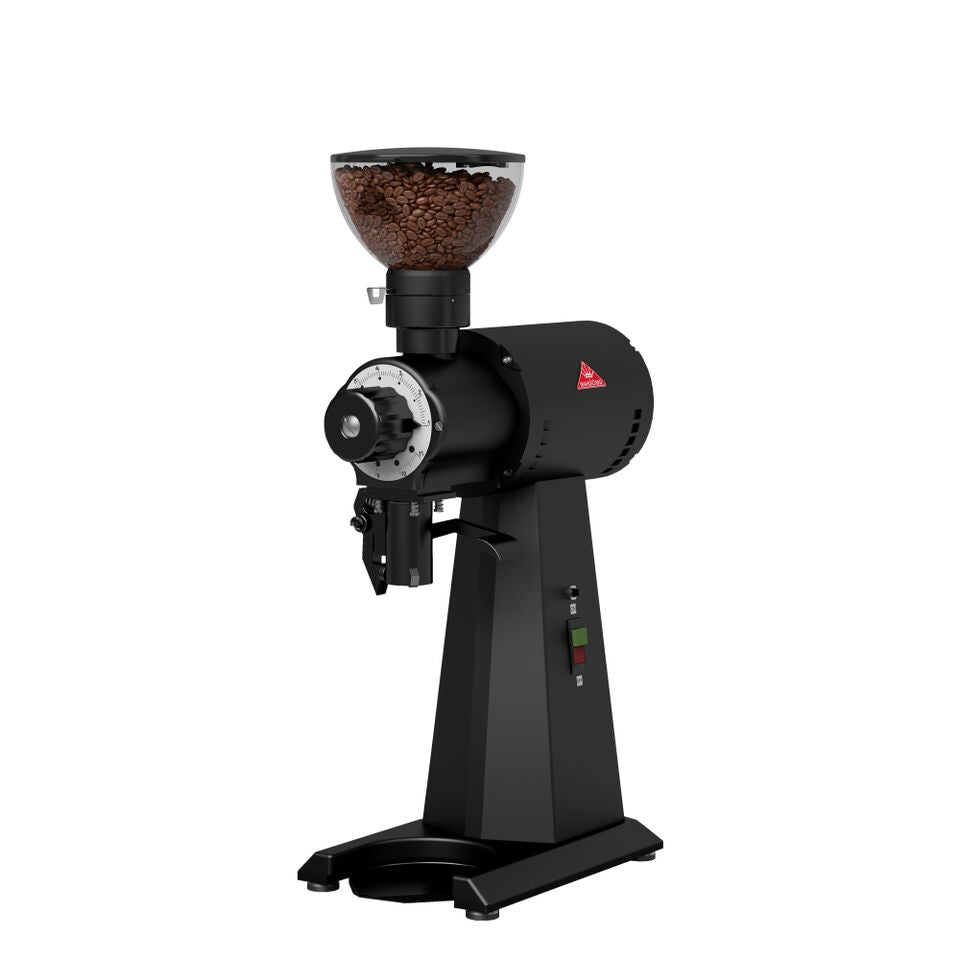A Starter's Guide to Industrial Coffee Grinder Models
A Starter's Guide to Industrial Coffee Grinder Models
Blog Article
Industrial Coffee Grinder Overview: Increase Efficiency and High Quality
In the affordable landscape of coffee production, choosing the ideal industrial coffee mill plays a crucial function in enhancing both efficiency and item top quality. Understanding the subtleties of numerous grinder kinds and vital attributes-- such as adjustable grind settings and robust construction-- can considerably affect the last taste profile of the coffee.
Understanding Grinder Kinds
When selecting an industrial coffee mill, recognizing the different kinds offered is vital for maximizing both flavor removal and functional effectiveness. The two key sorts of mills are blade grinders and burr grinders. Blade mills use sharp blades that slice coffee beans right into inconsistent dimensions, bring about unequal extraction and potentially undesirable tastes. While blade grinders are frequently more suitable and budget friendly for small procedures, they are normally not suggested for commercial use.

Ultimately, choosing the appropriate type of mill is integral to keeping high quality and performance in coffee production, making it important for organizations to purchase top quality burr grinders for optimal results.
Secret Features to Think About
Picking an industrial coffee grinder needs careful consideration of numerous vital attributes that can considerably affect both efficiency and the total coffee experience. One of the primary elements to review is the grinding system. Burr mills are usually preferred over blade grinders, as they supply a regular work dimension, which is essential for optimal extraction and flavor.
One more important function is the grinder's capability. A flexible grinder with multiple setups enables you to customize the grind size to various developing approaches, boosting the coffee's taste profile.
Assess the mill's noise degree, especially in a busy coffee shop or manufacturing setting, where extreme sound can be turbulent. Spending in a mill that balances these attributes can significantly boost both functional efficiency and the high quality of the coffee served.
Optimizing Grinding Process
To accomplish the ideal results in coffee preparation, optimizing the grinding process is crucial. The work dimension considerably affects removal, taste, and total quality of the brewed coffee.


In addition, keeping track of the grinding speed can enhance the process. Slower grinding typically generates less warmth, preserving delicate tastes and aromas. On the other hand, faster grinding may produce too much warmth, adversely affecting the coffee's quality.
Maintenance and Treatment Tips
Appropriate maintenance and Get the facts treatment of commercial coffee grinders are vital for making sure ideal efficiency and durability. Regular cleaning is the structure of maintenance; residue accumulation can affect flavor and grinding performance. It is suggested to cleanse the grinder after each use, cleaning down the outside and eliminating any type of coffee grounds from the burrs.
In addition, check the grinding burrs for wear and tear. Dull burrs can jeopardize work uniformity, so they ought to be changed as needed. Industrial Coffee Grinder. Regularly adjusting the mill is also essential, as this keeps the wanted grind dimension for different brewing techniques
Lubrication of moving components must be carried out according to the supplier's specs, as this minimizes rubbing and prolongs the life of the tools. It is important to use food-grade lubricating substances to ensure security and compliance with wellness policies.
Last but not least, maintain the grinder in a stable and completely dry environment to avoid rust and rust. By sticking to these maintenance and treatment tips, drivers can improve the effectiveness of their commercial coffee mills while making certain top quality output and extended operational life.
Return on Financial Investment Analysis
Evaluating the return on financial investment (ROI) for industrial coffee mills is vital for companies looking for to enhance their coffee manufacturing capabilities. An extensive ROI evaluation aids figure out the monetary feasibility of investing in top quality mills, enabling services to evaluate the preliminary costs against prospective gains.
To carry out a thorough ROI analysis, organizations must think about numerous crucial elements. Initially, evaluate the purchase cost of the grinder, including installation and any required alterations to existing framework. Next, determine operational prices, his explanation including power usage, upkeep costs, and labor efficiency improvements. High-performance mills usually result in minimized grinding time and increased throughput, which can significantly boost performance.
Additionally, take into consideration the effect on product top quality. Industrial Coffee Grinder. Superior mills generate an even more consistent grind dimension, which can improve flavor profiles and client satisfaction, ultimately driving sales. By enhancing the high quality of the last item, services can validate higher pricing, causing increased revenue
Conclusion
In recap, a commercial coffee grinder plays a pivotal role in boosting both efficiency and item top quality within check this site out coffee production. Inevitably, the critical investment in a trusted mill contributes significantly to boosted profits and competitiveness in the coffee market.
In the affordable landscape of coffee production, picking the appropriate commercial coffee grinder plays a pivotal function in enhancing both efficiency and item quality. The 2 primary kinds of mills are blade mills and burr grinders. Within the burr grinder category, there are flat burr grinders and conelike burr grinders, each with its benefits. Burr mills are usually preferred over blade grinders, as they supply a constant grind dimension, which is vital for ideal removal and flavor.
In recap, a commercial coffee grinder plays a pivotal role in enhancing both performance and item top quality within coffee production.
Report this page